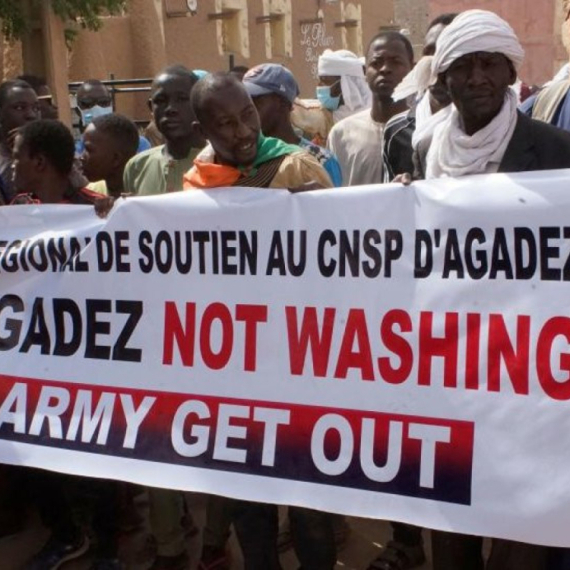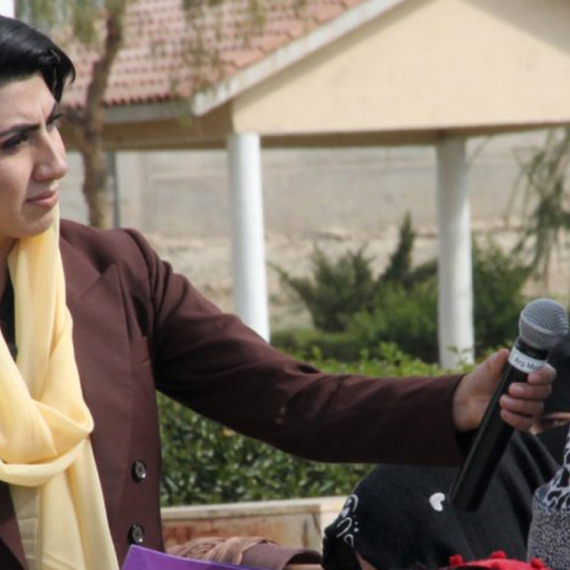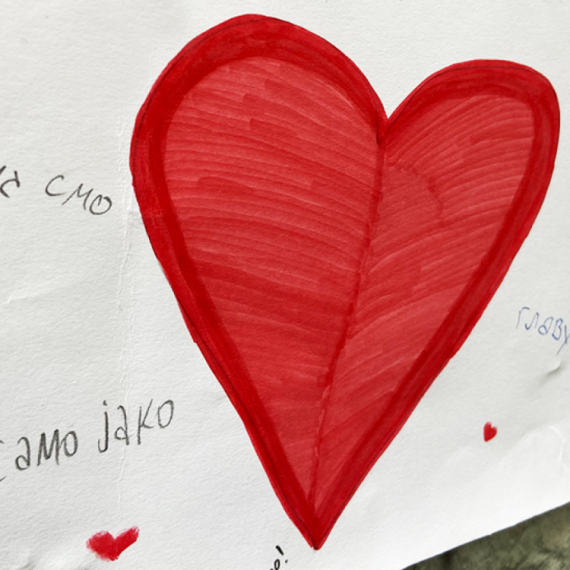Lavrov slams U.S. unipolar policies
Russian Foreign Minister Sergei Lavrov on Saturday slammed U.S. "unipolar" policies in Iraq and Afghanistan, RIA Novosti says.
Sunday, 28.09.2008.
14:21

Russian Foreign Minister Sergei Lavrov on Saturday slammed U.S. "unipolar" policies in Iraq and Afghanistan, RIA Novosti says. Lavorv added that they contributed to the recent conflict between Moscow and Tbilisi over Georgia's breakaway republic of South Ossetia. Lavrov slams U.S. unipolar policies Addressing the UN General Assembly, Lavrov said that the U.S.-led war in Iraq had delivered a painful blow to global anti-terrorism measures. He also questioned the NATO-led efforts in Afghanistan to fight Taliban militants. "The illusion of a unipolar world confused many. For some people, it generated a desire to make an all-in stake on it. In exchange for total loyalty they expected to receive a carte blanche to resolve all their problems by any means," Lavrov said. "The all-permissiveness syndrome that they developed went rampant, out of all possible control, on the night before 8 August when the aggression was unleashed on South Ossetia." Georgia attacked South Ossetia on August 8 in an attempt to regain control over the republic, which split from Tbilisi in the early 1990s. Georgia's attack killed a number of Russian peacekeepers and hundreds of civilians. Moscow subsequently launched a five-day operation to "force Georgia to accept peace." "That attack against civilians and peacekeepers "trampled under foot all settlement agreements, thus putting an end to the territorial integrity of Georgia," Lavrov said. Two weeks after the conclusion of Moscow's military operation to "force Georgia to accept peace," Russia recognized South Ossetia and another breakaway republic, Abkhazia, as independent states. The Russian foreign minister said that last month's recognition move taken by Russia "was the only possible measure to ensure their
Lavrov slams U.S. unipolar policies
Addressing the UN General Assembly, Lavrov said that the U.S.-led war in Iraq had delivered a painful blow to global anti-terrorism measures. He also questioned the NATO-led efforts in Afghanistan to fight Taliban militants."The illusion of a unipolar world confused many. For some people, it generated a desire to make an all-in stake on it. In exchange for total loyalty they expected to receive a carte blanche to resolve all their problems by any means," Lavrov said.
"The all-permissiveness syndrome that they developed went rampant, out of all possible control, on the night before 8 August when the aggression was unleashed on South Ossetia."
Georgia attacked South Ossetia on August 8 in an attempt to regain control over the republic, which split from Tbilisi in the early 1990s. Georgia's attack killed a number of Russian peacekeepers and hundreds of civilians. Moscow subsequently launched a five-day operation to "force Georgia to accept peace."
"That attack against civilians and peacekeepers "trampled under foot all settlement agreements, thus putting an end to the territorial integrity of Georgia," Lavrov said.
Two weeks after the conclusion of Moscow's military operation to "force Georgia to accept peace," Russia recognized South Ossetia and another breakaway republic, Abkhazia, as independent states.
The Russian foreign minister said that last month's recognition move taken by Russia "was the only possible measure to ensure their


















































Komentari 4
Pogledaj komentare